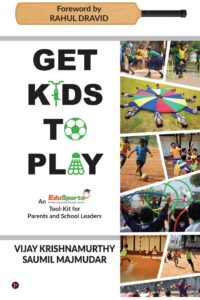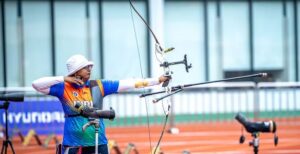
The Indian cricket team’s resilience, showcased so tellingly in Melbourne and Sydney, has been the toast of sports lovers. And, to say the least, it is richly deserved. Not only have its players endured the absence of a number of their team-mates owing to injury but also endured long spells in bio bubbles away from their homes.
Sports psychologist Mugdha Bhavare is among those who have observed them and appreciated their mental toughness. “I am really happy that the Indian cricketers have coped well with the challenges. They have held themselves together and handled the pressure well,” she says over the telephone from her Mumbai home.

“I was in touch with some players during the Indian Premier League in the United Arab Emirates and I think that the franchisees admirably helped the players deal with being in the bubble. I think they carried forward that mindset to Australia,” Mugdha Bavare says, alluding to the fact that most players from one bio bubble to another.
But that was not the reason for the conversation with her. The focus was largely on the biggest sporting event this year. After all, there are just over six months left for the scheduled start of the postponed Olympic Games in Tokyo – and, given the state of the Covid-19 pandemic, just as much certainty in the minds of athletes about the Games.
India’s athletes of some disciplines have remained in secure environments at the Sports Authority of India facilities in Patiala, Bengaluru, Sonipat and Lucknow; others have been caught in two minds about leaving the safety of their homes; and a few have travelled to train outside India. But all of them are bound by one common thread: uncertainty.
Lessons for other sportspersons from cricketers
Mugdha Bavare agrees that there could be a lesson for India’s Olympic hopeful from the cricketers in terms of handling life in secure bubbles and performing the best they can. Of course, there are a couple of factors to be considered.
“The Olympic athletes don’t follow cricket to such minutest levels. Besides, cricket is a team game where players can talk to team-mates. It will be tougher for athletes in individual discipline to divulge everything to their compatriots, some of whom may be competitors. It can be a bit of an issue,” she says.
Yet, it is imperative that athletes keep themselves abreast of developments, identifying and preparing for threat areas. “Some are not in the athletes’ control but rather than ignore them and have a Let-us-see-later approach, they have to identify and think through to compete in any situation like the cricketers are doing. Everyone needs to get trained for it,” Mugdha Bavare says.
“We talk a lot about sports science but ignore mental training. Sports psychology takes the backseat in the scheme of things of many coaches. Many think that athletes can perform even without mind training. It needs greater acceptance. Every sportsperson needs a mental trainer who he or she can get back to,” she says, not just because she is a counselling psychologist.
Having been a part of the Olympic Gold Quest’s Coaches Excellence Programme, she says coaches need to understand the relationship they share with their athletes and the right way to communicate. “They have to be very sensitive to the athletes’ needs. Our coaches are closed but 30 to 40 per cent have realised that they need to open up to this concept of mind training.
“There is a greater acceptance of the fact that the mind can be trained. I have been in the line for 20 years, there is a great awareness and huge change at the lower levels. Eagerness too even at the entry level in a metropolitan city like Mumbai. NGOs and some NSFs have seen more acceptance of mind training concepts,” she says.
Swimmers hit the hardest by the pandemic fallout

As an international swimmer who transitioned to being a psychologist, she does follow the sport with a bit more interest. “Swimming got the biggest blow in the wake of the outbreak of Covid-19 pandemic. Even if you were working on fitness, you needed to have the feel of water and that was not available for a long time. It is a different ball game altogether,” she says.
She advises swim coaches and swimmers that while short-term goal of aiming to qualify for and go to Olympic Games is good, a longer vision is necessary. “Athletes must not risk injury because coaches are in a hurry to get the swimmers to original form. It is not going to happen since they have lost eight to nine months’ owing to the pandemic. It is very, very long period,” she says.
“We cannot be impatient to get into the international mode. The pressure on swimmers and coaches to secure a quota for Olympic Games 2020 can boomerang in terms of injuries – physical or emotional or both. Physical injuries can be dealt with, but emotional injuries are not easy to come back from,” says the psychologist.
“Of course, we have to prepare for Olympic Games, but it is important to keep the Commonwealth Games and Asian Games in 2022 in mind. We need to distinguish between swimmers who can be definitely held back for 2022. They need to prioritise and that will work better for coaches and swimmers,” Mugdha Bavare says from a mind trainer’s perspective.
Yet, swimming is only a part of the larger landscape of Indian sport which faces different challenges brought along by the pandemic. It will only be apt that the powers that be encourage the entire elite sports ecosystem to embrace mind training and seek help from professionals to be able to focus on their goals.





